Podcast: Play in new window | Download (Duration: 39:16 — 72.2MB)
My Interview with Steve Mister, President of the Council for Responsible Nutrition
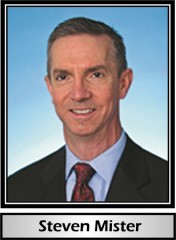 Herbs Under the Magnifying Glass
Herbs Under the Magnifying Glass
 In February 2015 a story broke in the New York Times that the Attorney General of New York Eric Schneiderman had declared that major big box retailers were selling herbal products that were inferior, mislabeled and/or contaminated. He had tested nearly 500 products and declared that 80% of the product were devoid of any of the herb indicated on the label. This news sent shock waves through the nutrition supplement industry and created a great deal of confusion and consternation. These were not small mom and pop businesses. These are some of the biggest retailers in the nation. How could this be? If this is true, what does that say about nutritional supplements as a whole?
In February 2015 a story broke in the New York Times that the Attorney General of New York Eric Schneiderman had declared that major big box retailers were selling herbal products that were inferior, mislabeled and/or contaminated. He had tested nearly 500 products and declared that 80% of the product were devoid of any of the herb indicated on the label. This news sent shock waves through the nutrition supplement industry and created a great deal of confusion and consternation. These were not small mom and pop businesses. These are some of the biggest retailers in the nation. How could this be? If this is true, what does that say about nutritional supplements as a whole?
A lot has happened since then. Things have calmed down somewhat. What is basically clear is that the Attorney General used a test that was totally inappropriate and therefore he had faulty results. So his conclusions were wrong. The products were perfectly fine. How does this happen? It is a perfect example of how you must look beyond the headlines in order to discern truth. So if you were left with the impression that the big box retailers were selling illegal products, this interview will help you understand the whole situation. In this interview Steve Mister, President of the Council for Responsible Nutrition, discusses how the NYAG got it so wrong and what do consumers need to know about today’s nutritional supplement marketplace. Who do you trust for accurate, reliable and credible nutritional information?
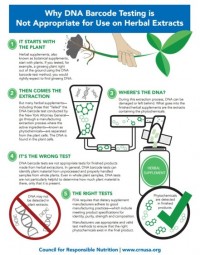 If you want to learn more download this white paper: The Capabilities and Limitations of DNA Barcoding of Botanical Dietary Supplements and/or click on the infographic to the right.
If you want to learn more download this white paper: The Capabilities and Limitations of DNA Barcoding of Botanical Dietary Supplements and/or click on the infographic to the right.
To me this situation is problematic in several ways and the fallout leaves us with unanswered questions but it also points in certain directions that can help insure that, as consumers, we can have confidence in the products that we purchase. Here’s how I see it:
1. The New York Attorney General got it wrong. There is no take home message for consumers based on his reported results. He has acknowledged as much (though not officially) but that has not been a big news story. Did you hear the rest of the story? The real take away is that they can’t necessarily be trusted to get it right. All this has done is confuse consumers for no good reason and cost the affected companies untold dollars in order to address the issue with the NYAG but also to repair the breach of trust with customers. All because the NYAG got it wrong.
2. The FDA and FTC are the national agencies that oversee the nutritional supplement industry. There are strict and significant regulations that supplement manufacturers must follow. It is the FDA that should be the authority in this case, not the NYAG.
3. The FDA and FTC are making progress in targeting manufacturers. Good companies follow Good Manufacturing Practices (GMPs). These are the well known companies that have a history of providing quality nutritional supplements. It is not hard to find reliable manufacturers, you just have to commit a little time up front to discern one from another. But you cannot assume that all products are equal or even of good quality. You can even review the warnings and actions taken by the FDA against many sub-par manufacturers. You can even find out if your favorite company has been warned or had action taken against them.
4. There are ways for consumers to find quality products and effective nutritional ingredients. You must first understand that there are differences and distinctions. If you cannot make distinctions in the marketplace of supplements then you cannot make an informed decision. You must make some effort to understand what factors are important to you. If low price is your primary criteria and you only buy the inexpensive products then you are not getting the highest quality product. Price is only one of many types of criteria you could use. If you choose trademarked and clinically studied products, and you use them as used in the studies, then you have a reason to be optimistic.
If you purchase products on the internet without any consideration is risky behavior. Companies that do not comply with the law cannot be expected to provide quality ingredients or honest and truthful information. FDA and FTC have strict regulations about what you cannot say in marketing. If a company is making claims about curing or treating disease, then they are likely violating federal regulations. The FDA has made it very difficult for reputable manufacturers to discuss legitimate science of nutrition relative to diseases. This actually makes it easier for unscrupulous manufacturers to make claims that are illegal but so enticing to consumers. It is no wonder that consumers are confused.
5. You cannot trust the general news media to give you an accurate assessment. Media gives you the headline. Rarely do you get the rest of the story. When it comes to supplements the headlines are often misleading or incomplete and sometimes just wrong. Always assume there is more to the story. Where is the news story that says NYAG got it wrong. Supplements are cleared by NYAG. You never see a headline like that. Seek to develop resources that you have confidence in. Look for experts that can articulate the facts so that you can make informed decisions based on what you learn. This is what we provide for you here on HealthQuestPodcast.com. We are one resource for you and we always lead you to other sources where you can learn more. Look for consensus of opinions to validate your thinking. Or find a friend or health practitioner whose advice you trust.
6. Expect good companies to be more transparent. This is a growing trend among good companies. When consumers see a bottle of product on a shelf, they cannot easily discern differences. Quality manufacturers do many additional things to make their products better and it is in their interest if the consumers knows and understands that this manufacturer does these extra things. Here is a partial list of what some of those considerations might be. Each of us get to decide what are the important distinctions:
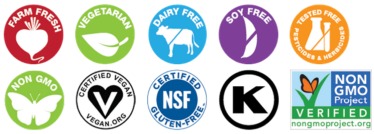 Organic
Organic- Whole Food/Food Based
- High/Low Potency
- Natural
- Non-GMO Ingredients
- Yeast-Free, Gluten Free, Soy Free etc.
- Clinically Studied Ingredients
- Trademarked/Patented Ingredients
- Price, Convenience, Source and/or Budget
- Allergies and/or Sensitivities
- Vegan/Vegetarian
- Socially Responsible
- There are others.
The point is to know that these distinctions exist. Choose what is important to you and seek to do the best you can with the knowledge and budget that you have. Seek to learn more about how to maintain and build health and seek to follow a path of building health. The more you understand why you are taking a particular action the better your choices will be. Better choices lead to better results. This requires that you choose your experts carefully. But this is how you get the best outcomes in anything you do. All you have to do is choose wisely. It is the practice of a lifetime.
About Steve Mister
Steve Mister has been President & CEO of the Council for Responsible Nutrition (CRN), the leading trade association for the dietary supplement industry, since 2005. Under his leadership CRN launched initiatives that center on increasing industry responsibility and consumer education. In addition to his role as President of CRN, he is also the President of the CRN Foundation. Among the Foundation’s achievements are the creation of a highly successful consumer wellness education campaign (Life…supplemented), a program with the National Advertising Division of the Council of Better Business Bureaus to review supplement advertising, and a grant to Frost & Sullivan to produce an economic report on healthcare cost savings from the targeted use of specific supplements. Mr. Mister holds a law degree from the College of William and Mary, an M.A. in Political Communication from the University of Maryland and a B.S. in Speech Communication from Towson University.
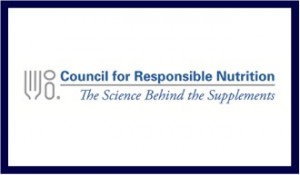





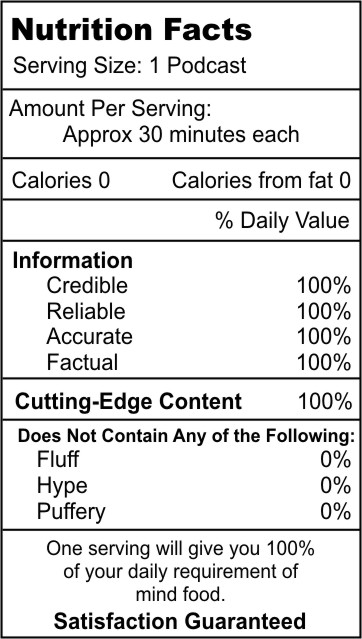




{ 0 comments… add one now }